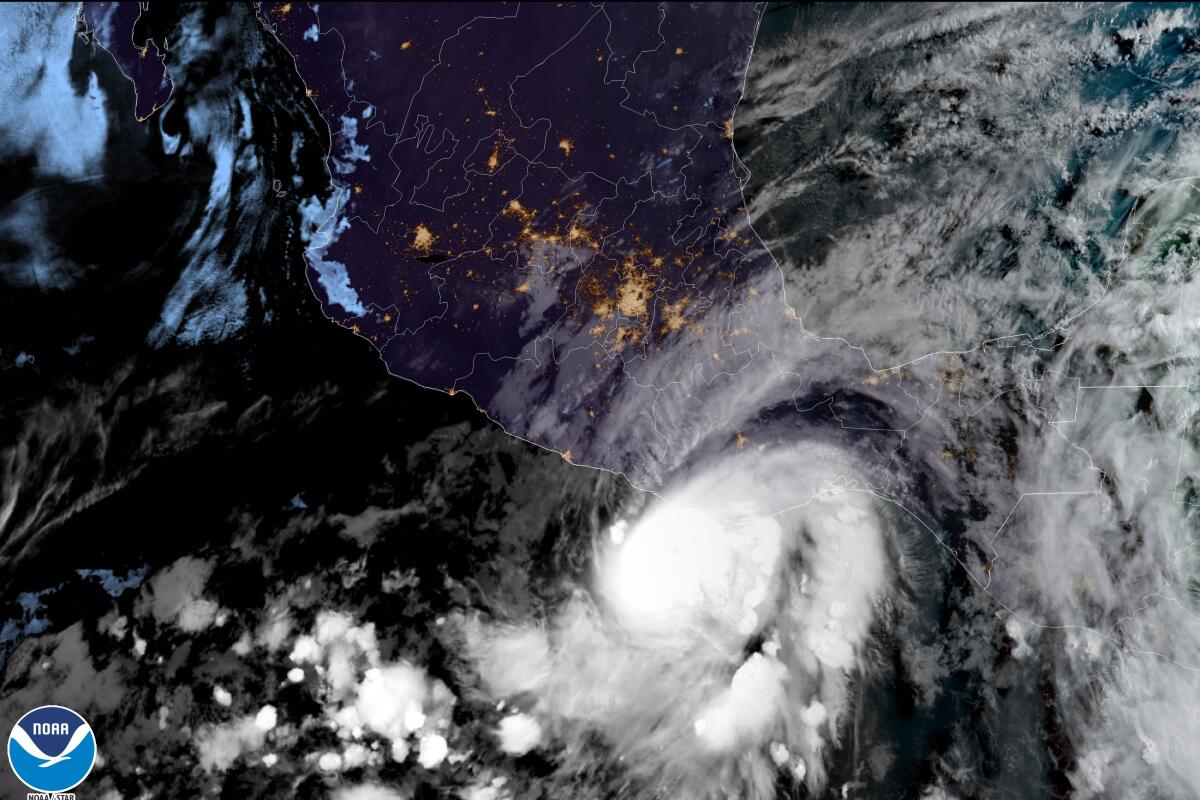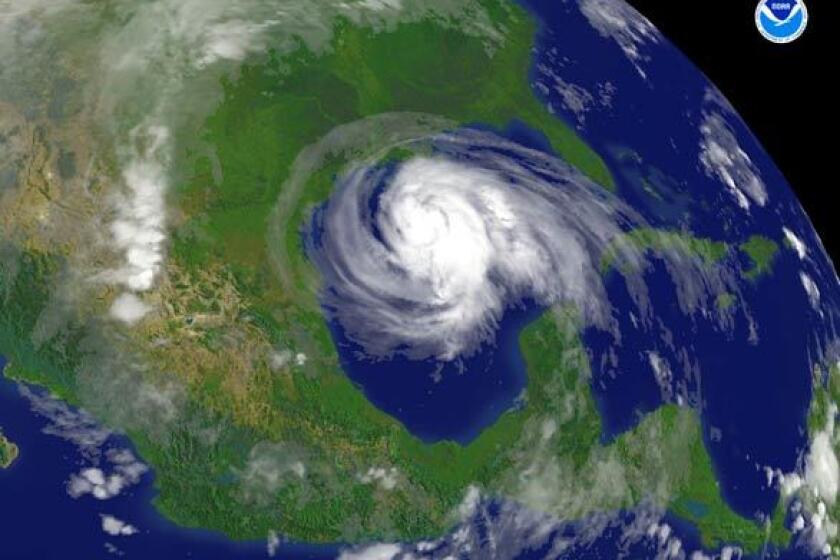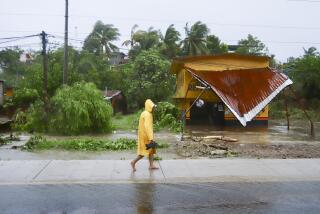Hurricane Agatha kills 11, leaves 20 missing in southern Mexico

SAN ISIDRO DEL PALMAR, Mexico — Hurricane Agatha caused flooding and mudslides that killed at least 11 people and left 20 missing, the governor of the southern state of Oaxaca said Tuesday.
Gov. Alejandro Murat said rivers overflowed their banks and swept away people in homes, while other victims were buried under mud and rocks.
“There were fundamentally two reasons” for the deaths, Murat told local media. “There were rivers that overflowed and, on the other hand and the most serious part, were landslides.”
Murat said the deaths appeared to be concentrated in a number of small towns in the mountains, just inland from the coast. But he said there were also reports of three children missing near the resort of Huatulco.
Agatha made history as the strongest hurricane ever recorded to come ashore in May during the eastern Pacific hurricane season.
It made landfall Monday afternoon on a sparsely populated stretch of small beach towns and fishing villages in Oaxaca.
It used to be that Atlantic hurricanes would lose most of their strength within a day of making landfall. Due to climate change, that’s no longer true.
It was a strong Category 2 hurricane, with maximum sustained winds of 105 mph, but it quickly lost power moving inland over the mountainous interior. Remnants of Agatha were moving northeast Tuesday into Veracruz state.
Murat said that power had been restored to some communities near the coast but that some bridges had been washed out and mudslides blocked a number of highways.
San Isidro del Palmar, only a couple of miles inland, was swamped by the Tonameca river that flows through town.
Residents waded through neck-deep water to salvage what they could from their homes, walking gingerly with piles of clothing atop their heads and religious figures in their arms.
As a ferocious hurricane bears down on South Florida, water managers desperately lower canals in anticipation of 4 feet of rain.
Argeo Aquino, who has lived in the town his whole life, said he could recall only two other occasions when he saw such flooding.
“The houses are totally flooded, so they are getting everything out,” Aquino said Monday as he watched his neighbors. “There are stores, houses. More than anything else, we have to try to save all the good material, because everything else is going to be washed away.”
The Tonameca’s brown waters reached the windows of parked cars and the minibuses used for local transportation.
Nearby, heavy rain and high winds lashed the beach town of Zipolite, known for its clothing-optional beach and bohemian vibe. The wind howled for about six hours Monday, said Silvia Ranfagni, manager of the Casa Kalmar hotel in Zipolite.
More to Read
Sign up for Essential California
The most important California stories and recommendations in your inbox every morning.
You may occasionally receive promotional content from the Los Angeles Times.










